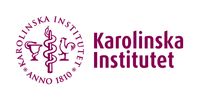No increase in pregnancy complications after COVID-19 vaccination
Vaccination against COVID-19 during pregnancy is not associated with a higher risk of pregnancy complications, according to a large-scale registry study from Karolinska Institutet in Sweden and the Norwegian Institute of Public Health published in the journal JAMA.

The study, which comprised almost 160,000 pregnancies, found no increase in the risk of preterm birth, growth retardation, low Apgar scores at birth or the need for neonatal care after vaccination against COVID-19 during pregnancy.
”The results are reassuring and can hopefully make pregnant individuals more willing to get vaccinated,” says co-first author Anne Örtqvist Rosin, researcher at the Department of Medicine, Karolinska Institutet (Solna).
Earlier studies have shown that pregnant women belong to a risk group for serious COVID-19 requiring intensive care with a higher risk of death than non-pregnant women of a fertile age. Pregnant women with severe COVID-19 are also more likely to have preterm births. Since January 2021, efficacious COVID-19 vaccines have been available in Sweden and Norway, and in May 2021 Sweden recommended all pregnant individuals to have a COVID-19 jab, followed in August by Norway.
”We're still seeing that vaccination rates are lower than in the rest of the population, so it's likely that there's some concern about how the vaccines affect the pregnant individual and the fetus,” explains Dr Örtqvist Rosin. ”When the vaccines were produced, pregnant women were not included in the large clinical studies, and until now there have been no population-based data about any risk there might be to them.”
The researchers linked Sweden's Pregnancy Register and Norway's Medical Birth Register to each country's vaccination register to obtain data on if and when pregnant individuals were vaccinated and with which vaccine. The study included a total of 157,521 individuals who gave birth between January 2021 and January 2022, of whom almost one fifth (18 per cent) had been vaccinated. It was found that vaccinated individuals were at no higher risk than unvaccinated of developing one of the studied complications.
The majority of the pregnant individuals included in the study were vaccinated after week 12 in accordance with current recommendations. 95 per cent received an mRNA vaccine (Pfizer-BioNTech or Moderna). This should be taken into consideration when interpreting the results, which were similar for the different mRNA vaccines irrespective of whether one or two doses were given. Vaccination during the third trimester and vaccination with the Moderna vaccine was associated with a slightly lower risk of neonatal care.
One potential advantage of vaccination during pregnancy is that the antibodies thus formed pass through the placenta, providing the newborn baby with a certain degree of protection against COVID-19.
”We're now planning to study how long this protection lasts, and if SARS-CoV-2 infection or vaccination during pregnancy has any other lasting effects on the child's health,” says joint last author Professor Olof Stephansson at the Department of Medicine, Karolinska Institutet (Solna).
The study was a collaboration between researchers at Sweden's Karolinska Institutet and the Norwegian Institute of Public Health. It was supported by grants from the Research Council of Norway, NordForsk and the European Research Council (ERC). Co-author and KI researcher Rickard Ljung has received a fee from Pfizer beyond the scope of this study and is an employee of the Swedish Medical Products Agency. No other potential conflicts of interest have been reported.
Publication: ”Association of SARS-CoV-2 Vaccination During Pregnancy With Pregnancy Outcomes”. Maria C. Magnus, Anne K. Örtqvist, Elisabeth Dahlqwist, Rickard Ljung, Fredrik Skår, Laura Oakley, Ferenc Macsali, Björn Pasternak, Håkon K. Gjessing, Siri E. Håberg, Olof Stephansson. JAMA, online 24 March 2022, doi: 10.1001/jama.2022.3271.
Contacts
For more information, please contact:
Anne Örtqvist Rosin, researcher, physician
Department of Medicine, Solna, Karolinska Institutet, Sweden
Tel: +46 737 355 309
Email: anne.ortqvist@ki.se
Olof Stephansson, professor, senior physician
Department of Medicine, Solna, Karolinska Institutet, Sweden
Tel: +46 70 283 98 27
Email: olof.stephansson@ki.se
Images
Karolinska Institutet (https://ki.se/en) is one of the world’s leading medical universities. Our vision is to advance knowledge about life and strive towards better health for all. Karolinska Institutet accounts for the single largest share of all academic medical research conducted in Sweden and offers the country’s broadest range of education in medicine and health sciences. The Nobel Assembly at Karolinska Institutet selects the Nobel laureates in Physiology or Medicine.
Subscribe to releases from Karolinska Institutet - English
Subscribe to all the latest releases from Karolinska Institutet - English by registering your e-mail address below. You can unsubscribe at any time.
Latest releases from Karolinska Institutet - English
New method reveals how the brain and inner ear are formed3.4.2025 20:00:00 CEST | Pressmeddelande
Researchers at Karolinska Institutet have developed a method that shows how the nervous system and sensory organs are formed in an embryo. By labelling stem cells with a genetic ‘barcode’, they have been able to follow the cells’ developmental journey and discover how the inner ear is formed in mice. The discovery, published in Science, could provide important insights for future treatment of hearing loss.
Fluoride in drinking water is associated with impaired childhood cognition7.3.2025 15:30:00 CET | Pressmeddelande
Elevated concentrations of fluoride can occur in well water, and in some countries, it is added to drinking water to counteract caries in the population. A study from Karolinska Institutet in Sweden now supports a few previous studies indicating that exposure to fluoride during the fetal stage or early childhood may impair cognition in children. The study is published in the journal Environmental Health Perspectives.
Children with ARFID face increased risk of disease17.2.2025 17:00:00 CET | Pressmeddelande
Children with avoidant restrictive food intake disorder (ARFID) have an elevated risk of developing psychiatric and physical conditions, a new study from Karolinska Institutet published in JAMA Pediatrics reports. The study highlights the importance of early identification to improve care of these children.
Preterm babies receive insufficient pain management27.1.2025 15:29:17 CET | Pressmeddelande
A large proportion of babies born very early need intensive care, which can be painful. But the healthcare system fails to provide pain relief to the full extent. This is shown by the largest survey to date of pain in neonatal care, now published in the journal Pain.
New study paves way for immunotherapies tailored for childhood cancers20.1.2025 17:00:00 CET | Pressmeddelande
Researchers at Karolinska Institutet and the Astrid Lindgren Children’s Hospital in Sweden have determined how children’s immune systems react to different kinds of cancer depending on their age. The study, which is published in the journal Cell, reveals significant differences between the immune response of children and adults, and has the potential to lead to new tailored treatments for children with cancer.
In our pressroom you can read all our latest releases, find our press contacts, images, documents and other relevant information about us.
Visit our pressroom

